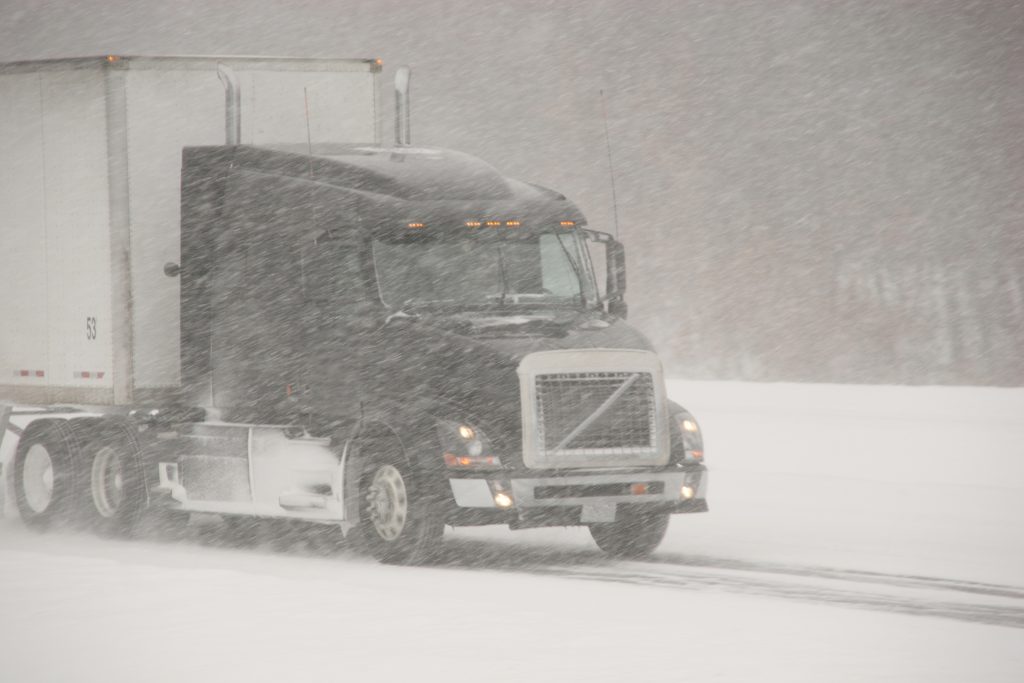
When the weather gets cold, several bad things can happen to diesel trucks. One common issue is diesel fuel gelling. This occurs because all diesel fuels have small amounts of paraffin waxes in them which solidifies in cold temperatures, clogging the fuel systems. This results in no-starts that require an emergency call to a mobile diesel mechanic experienced with diesel truck repairs. The cost of these emergency response diesel repairs and lost revenue makes these no-start issues exceedingly expensive.
To prevent this, adding anti-gel fuel additives to each tank of fuel is the “go-to” preventative action that many fleet managers take. The questions that need to be asked are:
- Are they worth the money?
- Are anti-gel fuel additives effective?
What are the Causes and Effects of Diesel Fuel Clogging:
When the paraffin waxes in diesel fuels solidify, they crystalize into small flowing clouds in the fuel. These clouds of waxes primarily affect three things:
- Fuel Filters are clogged with wax, restricting fuel flow to the fuel pump and injectors.
- Fuel lines get obstructed by wax built up on joints and walls, preventing proper fuel delivery.
- Fuel injectors: Gelled fuel can clog fuel nozzles, impacting engine performance.
These problems will result in engines not starting on cold mornings, loss of power, poor response time or general sluggishness of performance.
What is Anti-Gel Additive and How is it used?
The primary ingredient in a diesel fuel anti-gel additive is a long-chain, polar, oxygenated hydrocarbon combined with a glycol ether or alcohol. This prevents wax particles from solidifying or coming together in the fuel at low temperatures, thus preventing gelling.
Makers of antii-gel additives recommend it be added to each tank of fuel when temperatures are below 30 degrees. Many drivers and fleet managers do not know that Anti-Gels are only effective for the tank it is added to and does not provide residual benefit!
The recommended dosage is 1-Ounce of anti-gel additive to every 4 to 8 gallons of diesel fuel. As the temperature declines the dosages need to be increased. The cost of anti-gel varies from $0.40 to $0.55 per ounce. (The price can be lower when bought in larger quantities) Anti-gel additives will increase fuel costs by 5 to 12 cents per gallon or $5.00 to $12.00 for each 100 gallons of fuel.
In very cold climates, like in Canada, routine usage of fuel additives with every tank of fuel is done in the winter months. In areas of the United States, many users use the additives when the temperatures approach 10 degrees or colder.
What Do You Need to Consider When Using Anti-Gel Fuel Additives:
When deciding whether to use anti-gel fuel additives, consider the following factors:
- Climate: If you are based in, or frequently travel to areas with harsh winters, anti-gel additives are a valuable investment. You should also use it if below zero weather is forecast for your area.
- Vehicle Usage: Vehicles that sit idle for long periods in cold weather are prone to fuel gelling. Adding anti-gel additives is a prudent preventative measure.
- Cost-Benefit Analysis: Weigh the cost of the additive against potential savings from improved fuel efficiency and avoided repair costs.
- Manufacturer Recommendation: Always consult your vehicle’s manual and follow the manufacturer’s recommendations regarding fuel additives.
- Fuel Quality: If you’re unsure about the quality of diesel fuel available in your area, especially during winter months, anti-gel additives can provide an extra layer of protection.
Advantages of Anti-Gel Fuel Additives:
Makers of anti-gel additives often claim significant benefits beyond just fuel gelling prevention. Some of these benefits may only occur in extremely cold conditions such as in Canada and Alaska. These benefits include:
- Prevent Fuel Gelling: Anti-gel additives prevent diesel fuel from gelling in cold temperatures by lowering the fuel’s freezing point. This ensures it will remain in a liquid state even in the coldest conditions and prevents other problems.
- Enhances Fuel Economy: Some anti-gel additives also contain cetane boosters, which can improve fuel combustion efficiency (cetane is the diesel equivalent of octane for gasoline). This enhanced efficiency can lead to better fuel economy, helping offset the cost of the additive itself.
- Improves Cold Weather Performance: Anti-gel additives can improve a diesel engine’s cold weather performance because fuel flows more freely. They improve engine starts, and the engine runs smoothly even in harsh winter conditions. This is crucial for commercial vehicles operating in extremely cold climates.
- Protects Engine Components: When diesel fuel gels, it can cause damage to various engine components, including fuel injectors, fuel pumps, and filters. Anti-gel additives help protect these components from damage, potentially saving costly repairs.
- Additive Versatility: Many anti-gel additives include several additives such as detergents to clean injectors, lubricants to protect fuel system components, and corrosion inhibitors to prevent rust and oxidation. These benefits may be there but are difficult to quantify.
Drawbacks of Anti-Gel Fuel Additives:
While anti-gel additives have several benefits, there are a few negatives that we should be aware of. These include:
- Additional Cost: The primary drawback of anti-gel additives is the additional cost. Makers of anti-gel recommend that it should be added to each tank. While the price per treatment may seem small, it can add up over time, especially for vehicles that require frequent refueling. To save costs, consider using it only when the temperature is consistently 10 degrees or lower.
- Potential for Overuse: There’s a risk of overusing anti-gel additives if users don’t follow the manufacturer’s recommendations. Excessive use of anti-gel additives can potentially lead to injector fouling which can negatively impact performance.
- Inconsistent Quality: Not all anti-gel additives are created equal. The market is flooded with products of varying quality and some of them are simply not very effective. It can be difficult to compare the effectiveness and quality of products. We recommend using the most reputable brands which include “Hot Shot Winter Blend” and “Diesel 911.”
- May be Unnecessary: In regions where winter-blend diesel fuel is readily available, anti-gel additives may be unnecessary. Winter-blend diesel is already treated to perform well in cold temperatures, making additional anti-gel additives redundant.
- Potential Compatibility Issues: Some additives may not be compatible with certain engine types or fuel systems. Using the wrong type of additive could potentially cause more harm than good.
- Storage and Handling Concerns: Anti-gel additives often contain chemicals that require proper storage and handling. Improper storage could lead to degradation of the product or even safety hazards.
What Actions to Take if Your Truck Will Not Start on a Cold Morning:
Anti-gel additives are primarily designed as a preventative measure and are not effective once the fuel system or fuel filter is already clogged with gelled diesel. Other actions are needed which will require the services of a mobile on-site diesel mechanic or technician.
The first thing is to replace the fuel filter as it is likely clogged. Fill the new fuel filter with a 50/50 mixture of diesel fuel and anti-gel additive and add a double dose of additive to the fuel tank. Attempt to start the truck. If the truck still does not start, repeat the process of taking the fuel filter off and replacing it with the 50/50 mix.
Once the truck starts, let the engine idle for 20 minutes to thoroughly clean the fuel system.
Results and Recommendations:
When the weather gets extremely cold, fuel gelling will cause no-starts, downtime, and lost revenue. When this happens, you’ll be looking for emergency response services from an experienced diesel truck mechanic. The lost revenues and costs of emergency services will be onerous.
Anti-gel fuel additives can be a valuable preventative tool for diesel engine owners operating in cold climates. When used regularly, it offers benefits including reducing the chances of no-starts, improved cold weather performance, engine protection, and potentially improved fuel economy.
Each fleet operator needs to decide when and how to use anti-gel additives based on several factors. When used correctly, these additives can help ensure reliable performance in challenging winter conditions. When using anti-gel, it’s crucial to choose high-quality products and follow usage instructions.
If you have questions or need emergency response to repair semi-trucks, trailers, and fleet vehicles, Mobile Wrench has certified mobile diesel mechanics to help get you back on the road. Contact us to schedule an appointment.
